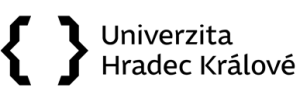The course will provide an overview of the most important political, social, cultural, and economic developments in Europe in the latter half of the twentieth century and in the twenty-first century. European history after 1945 is (largely) a period of peace, albeit peace within the context of the 'Cold War' which divided the world during 1945-1989. We will analyse Europe's role in the bipolar world of the Cold War and look at how the continent was divided into a Soviet-dominated 'Eastern Bloc' and an American-influenced west for much of the second half of the twentieth century. We will also look at the successes and failures of the 'European project' by examining the institutions of European integration, leading to a better understanding of the workings of the present-day European Union. This is also a period during which Europe's political weight on the world stage seriously diminished, giving way to the political 'Super-powers', the USSR and the USA. The module will consider Europe's changing (and deteriorating) relationship with Russia since the end of the Cold War (including the conflict in Ukraine), the politics of EU expansion (and, with Brexit, contraction), and the more recent challenges to the liberal order in Central European states such as Hungary and Poland.
- Učitel: John Paul Newman
